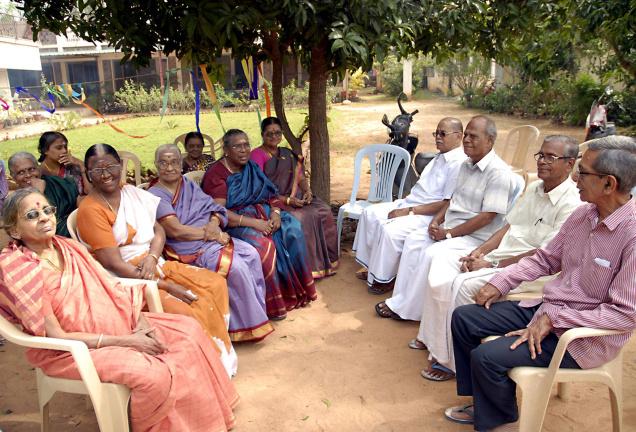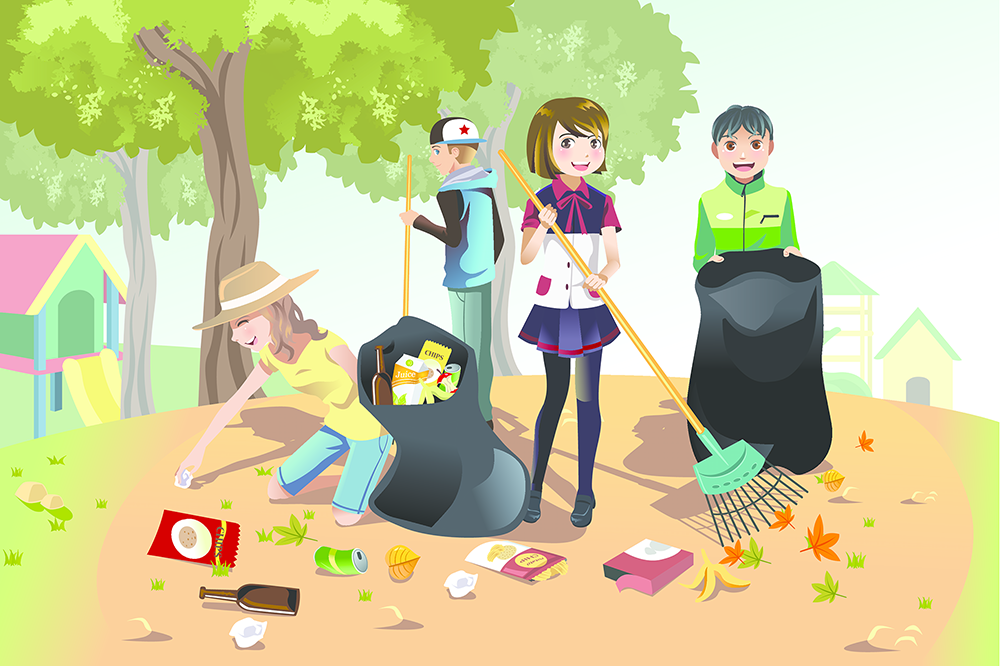
Education
There are Many children around the world having ability to learn but are not exposed to quality education.
RRCT believes that learning for the poor Children happens through effective education programs in the classroom and at home by assisting their need.
Assisting to develop school premises in a way to create better learning environment through renovation techniques and technology integration as and when required.
Counselling Parents and caregivers to help children prepared to enter the school.
Planning to introduce practices for reading and doing math outside of school hours.
We believe that children learning should not be disturbed under any circumstances, and we look forward to foster such environment so that no child is left behind.

Food For Needy
Provide nutritious meals to the poor and needy people. Donating groceries can help end the hunger of poor and
needy people. They cannot even afford a single time meal for themselves and their family, so donating food will make their stomach
fill and stay healthy. Rather than wasting food or throwing it, it is better to give it to a needy person.
By conducting collection drives for food, clothes, books, blankets and other necessities one can help the poor and needy people.
These collection drives can be conducted in schools,offices or locality and reaches to the neediest people.
It is one of the easiest way to help the poor and needy people. Contact the organizations who work for poor people to find out what
they need and then organize collection drive by setting up containers at schools, or local premises in which people can drop off donations,
ask offices to donate to the drive.

Hospital Services
Rural Healthcare is one of the biggest challenges that India is facing today. High mortality rates are subjected to poor health
care facilities in the rural areas of India. More than 70% of India’s population is living under the roof of rural setup.
These poorly established houses experience lack of proper supply of water and electricity. They manage to get a little water from far away
distant places in order to proceed with their daily activities.
Apart from this, their situation is vulnerable because of lack of education and public health awareness.
The key challenges in the health care domain are poor accountability, low-quality care, lack of health awareness and limited access to health facilities.
As a result, majority of people in India, turn to local private health sector as their first choice of care.
Local private health care is expensive and unregulated sometimes.
Considering the entire picture, RRCT Foundation took the initiative of introducing rural India to
health awareness programme. With the objective to, fill the gaps in implementation of various policies and programs failed to meet
the goals of a healthy rural India. It aims to educate rural India and make them aware of how to take proper care of their health.
This programme is focused towards addressing issues of personal health care, vaccination, hygiene, and illness prevention.
The Foundation operates with the commitment to health for all. Organizing various health camps at regular intervals are targeted
towards providing health solutions. These health camps impart health education and sensitize the community on preventive and promotive health grounds.
These camps are aimed at generating awareness, diagnosis and treatment of numerous health hazards.

Oldage Homes
People above 60 years of age are considered as 'old' and as constituting the 'elderly' segment of the population.
The Indian aged population is currently the second largest in the world. The absolute number of the over 60 population in India will increase
from 76 million in 2001 to 137 million by 2021. The shift in age structure makes issues of social security and economic support for elderly people
very crucial. India, with its predominantly agrarian based economy, has inadequate social security provisions for its older people.
Living arrangements of older people are influenced by several factors such as gender, health status, presence of disability,
socio-economic status and societal traditions. Generations of older Indians have found shelter in the extended family system during crises,
be these social, economical or psychological. However, the traditional family is fast disappearing, even in rural areas. With urbanization,
families are becoming nuclear, smaller and are not always capable of caring for older relatives. Yet, in India, older people are still cared
for by their families. Living in old age homes is neither popular nor feasible. Allowing parents to live in old age homes draws criticism from
the family network and society at large. Living alone is usually due to widowhood, childlessness or migration of children.
Women in Indian society are vulnerable throughout their lifetime and that increases into their old age. Like any other crisis ageing is a
challenge and a problem.
Many young people in India are migrating to different cities either within India or abroad to pursue further education or
in pursuit of their careers, leaving behind their old aged parents at home. The number of such families where all the children have left
and only the old parents staying at home is increasing day by day. This phenomenon is called "the empty nests".
It intends to depict a feeling of warmth, comfort and trust. It plans to instigate a feeling of hope into the lives of elderly.
Eradicate insecurity and loneliness from your life through a new concept of living.
We rely on the concept of “HOME AWAY FROM HOME” while facilitating an active life with necessary facilities
and positive approach. Celebrate a life free from duties and responsibilities.

Clean India
At RRCT we believe, Mission Clean India cannot be accomplished by governments alone. Business and industry have a key role to play.
In this context, RRCT will strive to assume a leadership role in the corporate realm; act as a catalyst in ensuring actual implementation and delivery;
create a model for others to emulate; augment government’s efforts; and create a healthy and empowered India.
For RRCT Foundation specifically, a clean RRCT India is a litter-free India where waste removal services are effective,
proper sewage disposal practices, bins are not overflowing, construction of toilets and waste is not dumped illegally, amongst others.
In addition to an effective infrastructure, realising a clean city vision requires community involvement and law abiding
citizens with a deep love for their city and its wellbeing. So RRCT Foundation will adopt a proactive approach to the challenge,
which will include educating the citizens of RRCT City and school children on the importance of keeping their communities clean.
An important component of the campaign will be to educate communities on the impact of littering and illegal dumping.
It will also address the negative impact these unlawful practices have on the environment.
The benefits of a clean city include healthy citizens and a productive economy, flourishing business hubs – and ultimately
a city that is highly attractive to investors and tourists. That’s the vision that RRCT Foundation has for Clean India.

Skill India
True to our spirit of skill development, we have established a series of Skill Training Centers with the aim of training 1 million youth.
The objective is to reach out beyond the conventional trades and provide instruction in a host of emerging avenues including Hospitality,
Customer Relations and Sales, IT enabled services, Electronics and Construction. Market linkages have been established to ensure employment of all trainees.
As a part of our strategy to train and empower the underprivileged with permanent skills, thus enabling them to earn their
livelihood, we have established Employability Linked Vocational Training Centers under the banner of RRCT LIFE (Learning Initiative for Employment).
True to our spirit of innovation, we have ensured that these Centers reach out beyond the conventional trades and provide instruction
in a host of emerging avenues including Hospitality, Customer Relations and Sales, IT enabled services and Construction.
For most of the trainee undergoing training, getting employment is a matter of survival and corporate handholding in honing skills and providing
job opportunities is viewed with great respect and value. Trainees at these Centers largely comprise of rural unemployed youth and those
from underserved areas. After successful completion of training the trainees are provided employment assistance for absorption into suitable vocations.

Tree Plantation
In face of ever increasing urbanization, RRCT has always been alive to environmental concerns.
It is our intention to give back as much, if not more, as is being taken through the rigorous development process.
The landscaping and greening of the area around all development projects is indicative of our endeavors in this regard
The world’s forests have an undisputed and vital role in sustaining natural and human environments.
They protect watersheds, provide habitats for wildlife and help to stabilize otherwise fragile ecosystems.
They provide many essential products for rural and urban dwellers. They also play an economic role, with the commercial extraction of
timber and pulpwood producing significant amounts of national income and foreign exchange in a number of countries.
In addition, forests provide a home and a means of livelihood for large numbers of people,
both traditional forest dwellers and those who find employment in extracting and harvesting commercial forest products.
Forests also play a vital role in agricultural production. Although shifting cultivation has been a cause of the deterioration
of much forested land, when it is practiced in an environmentally sustainable way, the natural process of regrowth and
regeneration of the forest restores the fertility of fallow land.
Although not as well documented, the role trees play outside established forested areas and reserves is also critical.
Trees, dotted about the rural landscape, around houses, along field boundaries and roadsides, and in communal grazing areas,
are seldom recorded in the formal statistics of forested lands. But for the majority of the rural population,
living away from the immediate vicinity of forested lands, these trees have an even more significant role than the forests
themselves. Therefore, policies and programmes intended to improve access to wood resources and other tree products
must be based on a recognition that the trees which will be most useful to these rural people may not be found growing in
the forests, but in their own backyards, on smallholdings and on communally held lands.
We offer ways for parents and community volunteers to get kids reading and doing math outside of school hours.
We make sure that children don't stop learning during a crisis, and we help to keep kids healthy so they don't fall behind or drop out.


